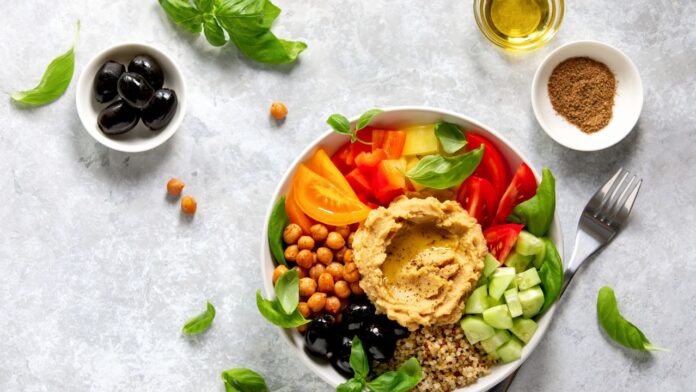They say you are what you eat, so if I switch to the Mediterranean diet, does that mean I get to become a gorgeous Greek god or a beautiful Italian goddess? I’m not sure about the physical transformation, but what I do know is that the Mediterranean diet is one of the healthiest and most delicious ways of eating. From fresh vegetables and fruits to savory olive oil and feta cheese, this diet is all about enjoying whole, unprocessed foods in a way that feels indulgent and satisfying. So, if you’re looking to upgrade your eating habits and feel like a million bucks (or euros), the Mediterranean diet might just be your ticket to culinary and physical bliss.
The Mediterranean diet is a way of eating that is inspired by the traditional cuisine of countries in the Mediterranean region, such as Greece, Italy, and Spain. It’s a healthy and balanced diet that has been linked to numerous health benefits, including reduced risk of heart disease, stroke, and type 2 diabetes.
One of the main features of the Mediterranean diet is the emphasis on whole, unprocessed foods, such as fruits, vegetables, whole grains, legumes, nuts, and seeds. These foods are rich in fiber, vitamins, minerals, and antioxidants, which are essential for maintaining good health. In addition, the Mediterranean diet also includes healthy fats, such as olive oil, and moderate amounts of fish, poultry, and dairy products.
facts about the Mediterranean diet
Here are three facts about the Mediterranean diet:
- The Mediterranean diet is based on the eating habits of people who live in the blue zone regions, which are areas of the world where people live longer and healthier lives. These regions include Sardinia, Italy; Ikaria, Greece; Nicoya, Costa Rica; and Okinawa, Japan.
- The Mediterranean diet has been shown to improve cognitive function and reduce the risk of Alzheimer’s disease. This is because the diet is high in antioxidants and anti-inflammatory compounds, which help to protect the brain from damage.
- The Mediterranean diet is not just a diet, but a way of life. It emphasizes the importance of social connections, physical activity, and stress reduction, all of which are important for overall health and well-being.
We should adapt the healthy habits of the Mediterranean diet because they have been proven to promote longevity, reduce the risk of chronic diseases, and improve overall quality of life. By following this way of eating, we can enjoy delicious and nutritious meals while also taking care of our bodies and minds. Try this lifestyle meal by Keli Wriston
Mediterranean Bowl Recipe
Ingredients:
1 can of Chickpeas
Bell Pepper
Red Onion
Garlic Cloves
Fresh Spinach
Hummus
Lemon
Avo Oil
Zaatar Seasoning
Salt + Pepper
Brown Rice
Kalamata Olives (optional)
Directions
Cut up onions, + Peppers placed on a baking sheet. Peel desired amount of garlic cloves, place on sheet. Spread 1 can of chickpeas on a baking sheet. Spread everything out evenly-ish. Spray avocado oil on everything, (you can use non spray obvi, but in a spray girl, cuz its easier and faster)—season however you like. I like the Zataar (which you can get at TJ’s) salt + pepper……..Bake for 20 mins at 350.
Meanwhile…cook yo rice. I use a rice cooker….again speed. Quick-cooking rice is cool too, otherwise, if it’s long-cooked rice, make that first. Pro tip: I cook my rice in veggie broth cuz it adds more flavor.
NOW! Build your bowl. Rice first, add your cooked veggies and chickpeas on top, grab a handful of raw spinach, a dollop of hummus, and squeeze some lemon, olives if you like them and ENJOY!
I adore bowls. They’re fuss-free and fantastic for a takeaway meal. My private clients are huge fans too – they appreciate the picturesque array of colorful veggies. It’s no longer just dinner, it’s an experience! A bowl showcases the beauty and deliciousness of healthy homemade meals.
We hope you like this recipe. Let us know in the comments what you think and please share this recipe with a friend.


